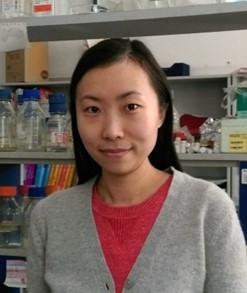-
39浏览
-
0点赞
-
0收藏
-
0分享
-
0下载
-
0评论
-
引用
期刊论文
Serine/Threonine Kinase Unc-51-like Kinase-1 (Ulk1) Phosphorylates the Co-chaperone Cell Division Cycle Protein 37 (Cdc37) and Thereby Disrupts the Stability of Cdc37 Client Proteins
J Biol Chem,2017,292(): 2830-2841 | 2017年01月10日 | 10.1074/jbc.M116.762443
The serine/threonine kinase Unc-51-like kinase-1 (Ulk1) is thought to be essential for induction of autophagy, an intracellular bulk degradation process that is activated by various stresses. Although several proteins have been suggested as Ulk1 substrates during autophagic process, it still remains largely unknown about Ulk1's physiological substrates. Here, by performing in vitro and in vivo phosphorylation assay, we report that the co-chaperone cell division cycle protein 37 (Cdc37) is a Ulk1 substrate. Ulk1-mediated phosphorylation of Ser-339 in Cdc37 compromised the recruitment of client kinases to a complex comprising Cdc37 and heat shock protein 90 (Hsp90) but only modestly affected Cdc37 binding to Hsp90. Because the recruitment of protein kinase clients to the Hsp90 complex is essential for their stability and functions, Ser-339 phosphorylation of Cdc37 disrupts its ability as a co-chaperone to coordinate Hsp90. Hsp90 inhibitors are cancer chemotherapeutic agents by inducing depletion of clients, many of which are oncogenes. Upon treatment with an Hsp90 inhibitor in cancer cells, Ulk1 promoted the degradation of Hsp90-Cdc37 client kinases, resulting in increased cellular sensitivity to Hsp90 inhibitors. Thus, our study provides evidence for an anti-proliferative role of Ulk1 in response to Hsp90 inhibition in cancer cells.
学者未上传该成果的PDF文件,请等待学者更新
本学者其他成果
同领域成果

 提示
提示

